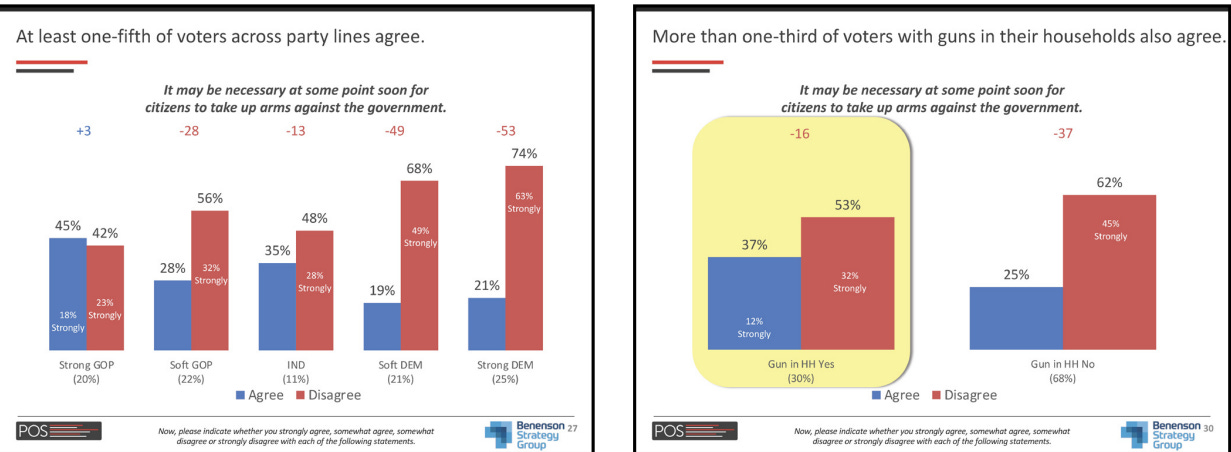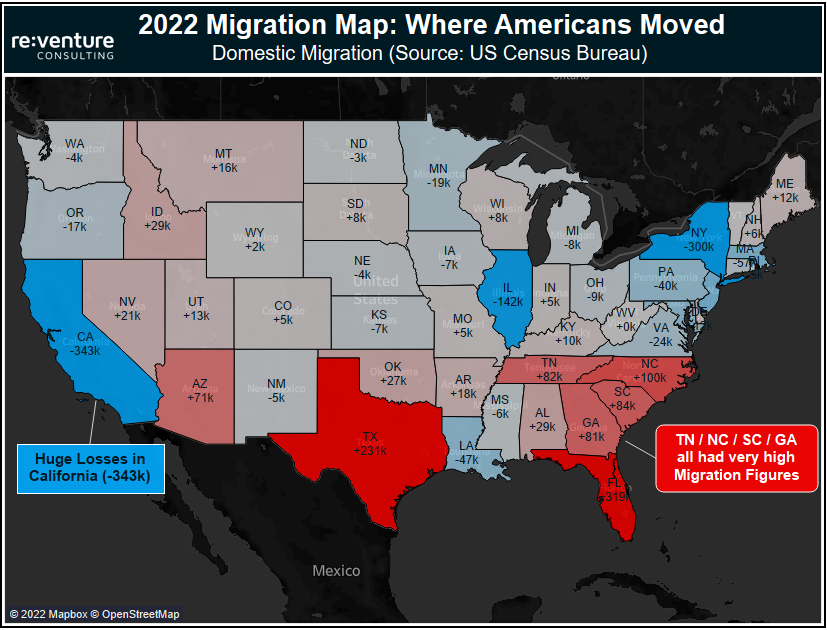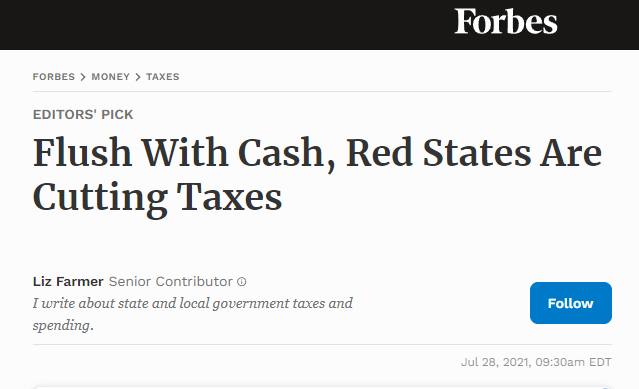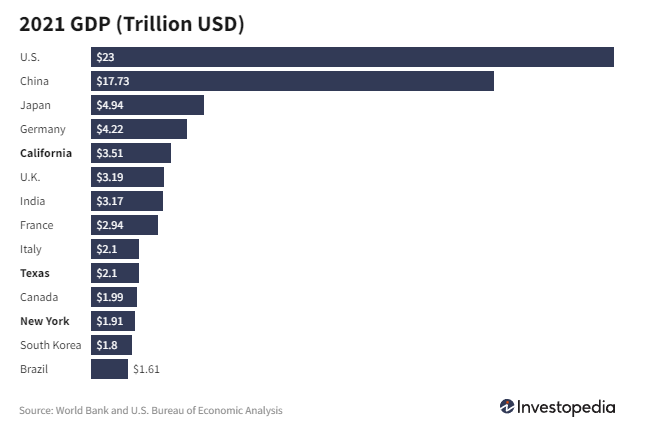On Secession and Civil War
On Secession and Civil War
Will there be breakup by 2030?
I often mention my long-held forecast that I predict the United States will either devolve into civil war or secession by the year 2030. Hearing this, many have asked me to expound at length about my thoughts on this, why and how I see it unfolding. So I’ve decided to finally treat the topic in a more in depth manner than the usual comment reply allows.
I.
The truth is, this is a popular prediction to make for many people on the ‘Right/Alt-Right’, but few actually delineate the specific mechanisms by which it can happen. And it is here that I believe I can shed some pertinent light as to the exact process, already in motion, that I believe will lead to these scenarios.
First, let us define a few basic ground terms so that we’re on the same contextual page. Just like how many people euphemistically say “WW3” when they actually mean “nuclear war”, when in reality WW3 has no direct, inherent relation to nuclear war per se, as it can simply be a global conventional conflict akin to WW2, similarly here, many people vaguely invoke ‘civil war’ without understanding what the term might actually imply.
Particularly in today’s cultural climate, when they conjure up ‘civil war’, many people are subconsciously referring to some sort of Rwandan Genocide-style conflict between the two opposing sides of Liberals and Conservatives, where the actual civilians have taken up arms and are battling it out in the streets. This notion of a ‘civil war’ is driven by endless memes posted by both sides which depict things like armed antifa leftists against conservative militiamen rifling it out in some dystopian suburban battlefield, perhaps akin to Seattle’s CHAZ ‘Autonomous Zone’.
Yet the historical precedent for ‘Civil War’, at least as it’s known in the U.S., is more synonymous with secession in the sense that it was two opposing governmental forces backed by conventional standing armies engaging in real military combat, rather than the a ragtag free-for-all of citizens armed with kitchen knives and .22 pistols in the city park.
In fact, to further confuse the point, the American Civil War was conceptually no different than a Revolutionary War, like that of 1776. And many people have pointed out that the Revolutionary War itself was in actuality a Civil War, which means that to some extent the U.S. has already gone through two civil wars, to make a rhetorical point.
This is all to make the point that what I’ll be mostly concentrating on here is not the Rwandan-style conflict that Twitter trolls envision as the model of a ‘civil war’, but rather the other variety.
The Rwandan-style one has the least chance of happening because it presupposes some sort of de-centralized, stochastic ‘free-for-all’ where people just happen to take up arms against the fellow man. Sure, there will be sporadic armed conflicts occurring regionally, owing to the growing racial and political divides in the country. But there exists no real formalized mechanism by which the two sides can even cohere into some semblance of organized, opposing armies with a central command, staff structures, etc. This is mostly a juvenile consideration, at least for any time in the semi-near future, of which we’re speaking. One could perhaps envision such a scenario much farther down the line than is possible to predict: some sort of weird, lawless, dystopian post-apocalyptic Mad-Max-style future in the year 2100, or something like that. But for our purposes, this is unrealistic and unworthy of serious deliberation.
II.
There is a third option some people refer to when invoking civil war: that of ‘people vs. the government’. I’ll treat this one briefly on its own, because there are a few important considerations here.
Firstly, this idea has gained traction as numerous American politicians have wielded this cudgel as a threat against upstart Americans who might like their chances in an uprising. Biden himself has remarked on at least two or three different occasions that ‘Americans need F-15s not AR15s to fight against the government’, implying that U.S. citizens can never defeat the government unless they’re armed with high level strategic weaponry, as opposed to mere small arms.
https://twitter.com/i/status/1564706079036116994
Democrat Eric Swalwell infamously threatened Americans with nukes if they resist the gun confiscation policies he’s pushed.
Technically, such a circumstance would not fall under ‘civil war’ but rather just a plain old revolution or armed uprising. Ultimately, this is all just semantic quibbling. However, I bring it up to note that most of the people throwing around these terms or discussing these topics are not even on the same page as far as consistency. So I wanted to delineate the various concepts so I could address each in turn, and readers can follow what I’m saying.
As to this option of the people vs. the government, I’ll say the following thing: The heaviest detractors of this possibility are typically anti-gun rights leftists who use the canard of ‘you can’t win against F-15s’ as a way to discredit the need for the 2nd Amendment. They usually paint a scenario where a bunch of ragtag AR15-armed civilians go up against a fully lock-and-stocked U.S. military with its full panoply of fighter jets, missiles, tanks, etc.
But the critical nuance they miss in this flawed hypothetical is the following question: who is it that’s supplying this mighty military force with all its fancy arms? Who is supplying it with fuel? Recall how in the current discourse about the dire Ukrainian munitions supply situation, we were shown CNN segments of blue-collar American workers toiling away in the last remaining of American factories which are left to even produce such munitions.
Do these anti-gun people believe that the military itself produces these arms, and their own gasoline, fuel, etc.? My point is that, it is the civilian infrastructure which wholly comprises the backbone of the U.S. military’s capability. Without the gas, fuel, munitions, etc., the mighty U.S. war machine is kaput. What will Abrams tanks do when the civilians who run the refineries shut them all down, the civilians who truck the fuel to depots all revolt? Civilians build all the F-15s, F-22s, and B-2 bombers that the U.S. government so haughtily brandishes like a saber. If it was a true ‘civilian vs. government’ battle, where will the government get all of its equipment? Even small arms factories are run by civilian workers.
In short, the government and its ‘mighty military force’ wouldn’t last in a true prolonged conflict against the population of the U.S. Of course, it all depends how many people would be on the revolting side in this hypothetical scenario. But let’s not forget that the U.S. has an estimated 400 million guns, and 393 million of those are in civilian hands. There are reportedly something like 70-100+ million gun owners. The U.S. military has about 800k total ground troops. Even with all the planes and tanks in the world, can 800,000 go against 100,000,000? You could argue they couldn’t even defeat the Vietcong’s less than 1 million, much less 100m. Not to mention that most Americans are far heavier armed than the typical Vietcong and their bolt-action rifles.
But like I said, those are just slightly absurd hypotheticals to put some things in perspective; in reality, this is not the type of scenario I expect to occur. It’s simply a quick two cents thrown into the debate to refute the typical leftist canard that the U.S. military is invincible, when in fact they entirely rely on the civilian sector to even function.
III.
As we build towards the actual scenarios which I believe have a strong chance of happening, let’s lay the final bit of groundwork by first seguing into the current socio-political climate in the country:
Among all US citizens, 43% said civil war was at least somewhat likely. Among strong Democrats and independents that figure was 40%. But among strong Republicans, 54% said civil war was at least somewhat likely.
It’s undeniable that a growing portion of the country is beginning to not only believe in the inevitability of ‘civil war’, but is outright hoping for one.

These are findings from a Chicago University study:
It shows that at least 1/5th of Americans agree, across party lines, that it will be necessary “sometime soon” to take up arms against the government. This goes to 45% amongst strong Republican supporters.
CNN did a piece covering a study that showed the U.S. is headed toward some form of civil war. A University of California researcher used a system of metrics designed to gauge the proximity and likelihood of civil war for other foreign countries, but applied the same calculations to the U.S.
Professor Barbara Walter explains she’s studied civil wars for thirty years and has spent the last few of them working for a CIA taskforce which uses such metrics to prognosticate ‘where the next civil war will occur’ in the globe.
The anchor summarizes: “What’s remarkable is the research isn’t based on sentiment (or political ideology), but based on metrics and markers and signs and facts that the U.S. uses to determine the state of other country’s democracies and proximity to upheaveal.”
Professor Walter explains, when turned against the U.S. itself, these same proprietary calculations reveal that the U.S. is at the edge of what the CIA would deem the cusp of the “RISK” to “HIGH RISK” categories. Normally, a country at ‘high risk’ would be placed on a special CIA watchlist, as upheaval there would be considered imminent.
Walter, the Post said, concludes that the US has passed through stages of “pre-insurgency” and “incipient conflict” and may now be in “open conflict”, beginning with the Capitol riot.
Citing analytics used by the Center for Systemic Peace, Walter also says the US has become an “anocracy” – “somewhere between a democracy and an autocratic state”.
These findings, however, are already more than a year old, and the country has likely slipped even further into the danger zone. Now, several prominent politicians like Marjorie Taylor Green have even begun to do soft-calls for a ‘national split’ which in some ways can be considered merely a safe euphemism for civil war.
North Carolina representative Madison Cawthorn was likewise seen invoking the specter of civil war, stating that he hopes it doesn’t happen, but is confident that conservatives would win:
Flying under the radar of these discussions is the fact that many U.S. states have nurtured growing secessionist movements, which have advanced quite a ways in recent years.
There is CalExit or ‘Yes California’. Their page explains:
Introducing Pacifica
The CalExit 3.1 ballot measure establishes the country of Pacifica in the San Francisco Bay area and along the central California coast. It will have a population of about 9 million people, more than 75% of which are Democrats and 61% of which are of a minority race.
In 2017, a Reuters poll was said to show that 32% of Californians supported CalExit. However, since that time it has reportedly dropped, as once the government got whiff of the movement’s danger, they sprang swiftly into action to kill it with counter-propaganda. But there are many other movements.
The strongest of them is in Texas.
Just last month, in March, 2023, Texas representative Bryan Slaton filed the ‘TEXIT’ act:
The official version can be read here: https://capitol.texas.gov/tlodocs/88R/billtext/html/HB03596I.htm
The main portion of it states that in the November 7 general election, Texas voters would be permitted to vote in a referendum on the question of whether Texas should reassert its status as an independent nation.
SECTION 1. (a) At the general election to be held November 7, 2023, the voters shall be permitted to vote in a referendum on the question of whether this state should reassert its status as an independent nation. (b) Notice of the election shall be given by inclusion of the proposition in the proclamation by the governor ordering an election on any proposed constitutional amendment to the state constitution and in the notice of that election given by each county judge, or, if no constitutional amendment is proposed, the governor shall order and each county judge shall give notice for an election proposing the referendum required by this section.
Section 2 of the bill describes all the actions that would immediately go into effect on December 7, 2023, only if the resolution is passed by majority vote of the people’s referendum.
The bill itself can be tracked here: https://fastdemocracy.com/bill-search/tx/88/bills/TXB00063968/
However, it should be noted that previous attempts with similar bills have failed, owing to the Texas state assembly refusing to even put it to a vote. Now the bill has been submitted and there is no telling whether the state assembly will vote on it or not; it appears to be quite an arbitrary process. However, if they do vote and the bill passes, then it opens up the referendum for secession on November 7 later in the year.
SurveyUSA polling found that whopping numbers of Texans and southerners in general support secession:
Each of the six southern state surveys began with respondents being asked if they would support their state peacefully becoming an independent country along with other conservative states. While a majority of Texans like the idea, with 60% saying yes (32% say "definitely yes," 28% say "yes"), results in the other states are less positive. Louisianans are evenly split; 50% say yes, 49% no; in the other four states, majorities oppose, with "no" and "definitely no" leading by 6 points in Alabama, by 8 in Mississippi, by 10 in Florida, and by 13 points in South Carolina.
This means that if the referendum were actually allowed to be held on November 7 in Texas, it could likely pass and the state would secede. However, the political games of establishment opposition figures actively work towards sabotaging the preliminary bill which establishes the referendum from even passing.
Texas has even begun proceedings towards creating its own gold-backed currency as a blowback against federal CBDCs and a preemptive action to protect itself against exactly the type of welfare subsidization of much weaker blue states. This type of action is just the first shot across the bow of the many tectonic movements we’ll see towards independence in the next few years.
IV.
Now that we’ve finished laying the groundwork, and established the current socio-political climate, we can extrapolate out what is likely to occur.
We know, for instance, that there has been a huge wave of ‘blue state flight’ happening for the past several years. Blue states are losing their productive taxpayer base, their human capital by way of brain-drain, and their populations in general. It’s been called everything from an exodus to a ‘Leftugee crisis’.
New Census data show that roughly half of the states had net gains in population in 2022, and the other half net losses, thanks to what’s called internal migration. The winners were almost entirely red states, the losers blue. There’s a huge opportunity for conservatives, if they seize it. -Source
The above map shows states with net losses vs. those with net migration gains. As can be seen, most of the red states are seeing large net gains while the blue ones suffer the hugest net losses. The numbers may seem small at first, but project them out over ten years or more. Can New York endure 300k a year losses for ten years? That would be 3 million people gone from a state with a 19 million population; this represents 16%. And what if it accelerates and goes even faster? Decades go fast—can they handle such losses for two decades straight? What if they were to lose 6 million out of 19 in two decades’ time, which would amount to nearly a third of the population?
When you extrapolate this out to years of time, you’re left with a scenario where blue states have been extremely weakened financially and demographically, and they’re forced to increasingly rely on subsidization from the federal government. But where do those subsidies coming from? From the tax base of the entire country.
That means, more and more, the red states will be forced to subsidize the dying blue ones. Citizens of the red states will grow increasingly resentful, as they will basically be paying high taxes from their hard-earned money to keep afloat the grotesque democrat cities which have descended into dystopian levels of lawless despair and degradation.
This will be coupled by increasing hostility from blue states and the blue-run federal government, which will put more and more pressure and clamp downs on red states in order to milk them dry to keep the decrepit blues afloat. You see, red states can’t be allowed to even have the ‘optics’ of success or prosperity because this exposes the scam of what the blue states are.
That means as the disparity grows over time, red states will have to be outright sabotaged by the federal government in order to ‘cut them down to size’, as per the infamously axiomatic equity rule, so as not to run a lap around the blue states. It will come in increasing forms of unevenly unfair mandates against red states, some of which we’ve already glimpsed in the recent past.
For instance, during the Covid ‘crisis’ the federal government infamously began confiscating monoclonal antibodies and other anti-covid ‘therapies’ from red states simply because they were too successful, and red states could not be allowed to cure their populations of the scam disease as that would expose the lie. To allow the disparity between red and blue to become obvious on the national stage would be dangerous for the ruling class.
Such unequal treatment and outright hamstringing of red states will grow in tempo through the coming years, creating a self-feeding spiral of resentment from red states towards the blues and the federal government, which will likewise work towards speeding up the pace of secessionist sentiment.
The government has even previously threatened to ‘sanction’ red states in the same manner it sanctions hostile nations, which would include things like withholding transport/deliveries of certain critical products not dissimilar from the monoclonal antibodies episode. It would extend to unfavorable contracts for various infrastructure-related projects, and ultimately could even lead to targeting of specific state representatives with personal types of sanctions. It’s really not a stretch from the people that banned and impeached the U.S. president and dragged him through various legal procedures on par with ‘sanctions’.
That is all to say that, as the two sides grow increasingly entrenched, and the hostility spiral continues radicalizing both to ever-growing levels of resentment against one another, and coupled with the fact that the dying blue states will in effect become vampiric leeches, sucking the red states dry, historic levels of dissatisfaction, resentment, and outright enmity from red to blue will surge. Reds will see blue states as a whole as degenerate welfare queens suckling at the teat of their hard-earned money—in effect robbing them blind. And as national issues become more and more tendentious, particularly over key demarcating lines like abortion, LGBT, transgenderism, etc., the reds will see no other way out other than to break away—or to have, as it’ll continue to be safely called for now, a ‘national divorce’.
I brought attention to Texas earlier because it seems the likeliest state to first kick off the proceedings, as their movements are the furthest advanced. But it wouldn’t surprise me if several other southern states joined once Texas got the ball rolling, creating a domino effect.
One forgets how close we were to a potential point of no return during the 2020 election cycle. For the time being, that revolutionary energy has been doused and banked. But it has begun building again, and promises to come to another head somewhere down the line.
Though it may seem small at first, there have been quiet rumblings of a southern state union for the past few years, as several of the key ‘old confederate’ states have been increasingly forming alliances on key issues.
These are the same states which banded together in an attempt to challenge the election fraud, and their ideological interests have slowly been aligning into political unity.
Also, consider the acceleration of de-dollarization currently taking the world by storm. What do you think will happen when the dollar finally collapses to the point of hyper-inflation, thus causing the further acceleration of the U.S. federal government’s forced seizure of the strong bastion states’ funds in order to prop up the failing blue states? This will lead to even further pushes by the strong, independent-minded states to create their own currencies, following Texas’ cue, and gradually decoupling from the central authority. The modern digital age will make this simple for them, as they can create their own digital currency without the need of complex centralized minting presses of their own, at least not initially. Once these states begin developing, and even transacting in, their own currencies, you’ll know the end is nigh.
V.
But the big question on everyone’s mind is, if Texas, Florida, and/or several other states seceded, what would happen? Surely they wouldn’t be allowed to do so, and the federal government would step in, in a redux of the Civil War of 1861?
Certainly, that’s what could happen. Of course, depending on who exactly is seceding, one must recall that much of the U.S.’s most important manufacturing and productive infrastructure, particularly that of the military variety, resides in states at risk of secession. Texas, for example, holds most of the country’s key oil production facilities. Many of the U.S. military’s most important high-tech weaponry is manufactured, or stationed in, southern states: whether it’s the F-35 in Georgia or the critical munitions factories in Mississippi and Louisiana, including this one:
Beyond that, the actual hardware itself resides in bases in these states. For instance, Tyndall base in Florida being where all F-22 pilots are trained, and where the largest contingent of American F-22s are housed—about ~60 out of the ~180 total craft.
Ultimately, it depends what the political scene is like at the time of the hypothetical secession. If the federal government is still strong and united, then certainly there’s a strong chance it could try to step in militarily and quickly quash any attempts at a breakup, particularly if it’s only one state standing alone in its attempt. However, if a coalition is formed, or a cascade of states in rapid succession, then it could preclude the government from acting and risking a dangerous internecine war.
The other factor is: let’s say by a hypothetical year of 2030, the U.S. has degraded exponentially to the point where the division in society and within the government is even far worse than it is now, and so many other geopolitical problems are flaring that the central government’s hands are completely tied. For instance, maybe by that point the Taiwan-China crisis (amongst others), is at its peak, the U.S. military is somehow embroiled and completely occupied, with the majority of its forces tied up overseas—not necessarily in kinetic conflict, but playing an important hair-trigger deterrence role all around Taiwan and elsewhere.
It’s possible that a strong state like Texas can spring secession on them at that point, when the government is at max distraction and would not realistically be able to do anything about it. Especially if this is then followed by a fast cascade of Florida and other states, it would quickly form a coalition strong enough to deter the federal government of the nominal U.S. from so much as threatening to act.
And the truth is, if you take a look at many of the secession polls and their attendant responses, many of the comments from the left/democrat side are fully in support of red state secession. After all, the ‘national divorce’ idea is one enthusiastically echoed by many leftists, a large contingent of whom would actually prefer to see red states leave ‘their’ precious union.
Furthermore, you have to consider what the presidency and congress would look like at this theoretical juncture. There are potential scenarios where the country has devolved into such a quagmire that states are looking to secede, but the congress (and maybe even presidency) is split enough, or even has a red majority, such that any federal action against those seceding states is mired down in contentious congressional disagreement, which would forestall or preclude congress from carrying out any form of decisive action, such as the hypothetical ‘military’ response against the seceding states.
One can easily imagine a converging ‘perfect storm’ of such scenarios, where a highly divided congress is handicapped by a depleted U.S. military mired down in overseas conflicts (Taiwan, etc.), and unable to act against states that suddenly choose to throw in the hat and slip out of the Union.
Let’s not forget that should such a scenario come to pass, the seceding states could sign agreements of support with some of the ‘Union’s’ adversaries—i.e. China and maybe Russia—to receive assistance. If the nominal military of the United States is at that point helping to wage war against China vis a vis Taiwan, then why wouldn’t China likewise pledge military assistance to Texas to safeguard it against any potential Union attack?
There are endless iterations of how this could precipitate. But the general thrust is that by 2030 and beyond, there is a distinct possibility that a highly weakened ‘late empire stage’ U.S., driven by disastrous MIC policies, will be ripe for breakup of this sort. Particularly if the trend outlined earlier, where red states grow economically and demographically stronger, continues down its projected path, one could see a politically and economically ascendant Florida, Texas, etc., willing to stand up against the disastrously weakened, war-bogged central authority.
This is not even taking into account if the U.S. actually does engage in a full-scale regional conflict with China, which does not go nuclear but sees the destruction of a large percentage of the U.S.’s fleet and naval capabilities. Such a ruined, humiliated, weakened state would not have much left in the way of resisting a newly renascent, ascendant Texas, et al. In some ways, such a scenario would parallel the 1917 Russian revolution against a decrepit, wayward authority mired down in an unpopular war (WW1), except this time taking the form of secession rather than governmental overthrow, although of course, that too is a possibility.
Ultimately, most things boil down to economics. Particularly, the socioeconomic circumstances of most blue states is a fait accompli that simply cannot be reversed, at least any time soon. This necessarily means that Blue America will continue their downhill decline—or outright collapse—and a confluence of geopolitical and global economic factors will only accelerate that.
The fact that the world is now entering a mini dark age of global recession, stagnation, stagflation, and general malaise brought about by the decoupling of West from East, itself brought on by the U.S.’s desperate attempt to stop Russia/China’s ascendance, means that there will be no easy elixir (or even a hard one) for the blue states in the U.S. Crime will continue its steady increase, socioeconomic factors will continue degenerating; this will only lead to even further outflows of population.
This necessarily and deterministically will bring the increase of government pressure on red states, leaving them holding the bag and doing unfair double duty to subsidize the failing blues. In particular, this will fall hardest on the strongest, most successful and independent of them: obviously, Texas and Florida are currently carrying the torch here. There will be no way out of this spiral. The government will be forced to steal from these strong, successful states, and to clamp them down unfairly to allow the dying blues a chance to compete. This can only logically lead to one possible end, outlined above.
VI.
As can be seen, the times have inadvertently birthed a generation of increasingly vocal and ‘radicalized’ candidates, like MTG, Matt Gaetz, the previously-mentioned Cawthorn, etc. Such figures will only grow more numerous, the trend continuing apace. A few years down the line, many of the independent-minded states will be brimming with unprecedented kinds of populist, incendiary firebrands, the likes of which will make Trump and MTG look downright tame. This new era of politicians will vocally condition the masses to accepting the notions of national divorce even more vociferously than the underhanded dog-whistles and euphemisms currently employed, undoubtedly leading to increased public calls for the offended states to simply walk away from a situation both sides identify as clearly irreconcilable.
One has to imagine that, beyond just the various socio-economic and political issues described above, the cultural divisions will only continue to grow. Can you really conceive of the current hysteric wave of transgenderism/LGBT/identity politics subsiding any time soon? On the contrary, the intensity will only increase. The push towards targeting children in this culture war, while completely restructuring the education system of the country towards subserviance to the LGBT/transgenderism code, will likewise grow stronger, making the situation feel utterly irreconcilable to the bastion states taking in the fleeing Leftugees.
Recall that, as I’ve written about here, the identity politics era is just barely into its second decade. Its roots in the Obama era hadn’t fully matured until the 2010-2011 ‘Occupy’ movement, which caused the elites to panic and scramble for a cultural neutron bomb that could efface their complicity in the fraudulent financial system’s impending collapse by quickly shifting discourse. Only after that point of 2011-2013 did things begin to pick up pace, yet their current severity makes us feel like we’ve endured this madness for ages.
Now imagine another decade plus of it. How much has changed in our society since those pivotal Obama years, that fleeting decade to decade-and-a-half of time? Imagine the same drastic scale of changes by the early 2030s, or even 2035. By then, the culture war stands to reach unfathomable levels of upheaval, untenable insanity, and outright societal dissolution. Put into perspective, it’s easy to imagine the bastion states finally deciding to pull the plug on the irreconcilable differences between the remaining sane states and those affected by the leftist mind virus.
Is there any hope to stave off such events, or are they an inevitability? It’s hard to imagine the left/democrats ever compromising on the disastrous cultural imperatives being ordered from on high; they’ve doubled down in commitment to see this thing through to the end. The reason is the smaller cabal of globalist controllers which dictates their policy sees no other way out. The cultural tide growing against them is simply far too strong. To make even the smallest concession would risk total collapse of their narrative and culture war initiative. And since the culture war itself is merely a veneer, a proxy for the much grander global financial system conflict, to lose the culture war would mean losing the control over all humanity which the banking cabal has cultivated since the early days of the first central banks.
The only way I see out of this, is for a true ‘swamp draining’ figure to take charge of the country. But the chances of that happening are growing ever-slimmer given the elites’ control over the electoral process is nearly total. Some thought the 2020 election would help to ‘expose’ the nefarious forces who’ve got the electoral system in their vise-like grip, yet it conversely only served to strengthen and entrench them even further. The recent Dominion systems ‘settlement’ with FoxNews, which led to massive behind the scenes fallout that included the defenestration of their most prized figure, proved this. Now that they have their big court victory, you’ll likely never be able to challenge them again—at least not from that angle. So I simply don’t see how any truly anti-establishment candidate ever wins again. Which only means that polarization will grow unabated, increased division will follow, and the breakup dreaded for so long will be inevitable.
Source: Dark Futura

























Comments
Post a Comment